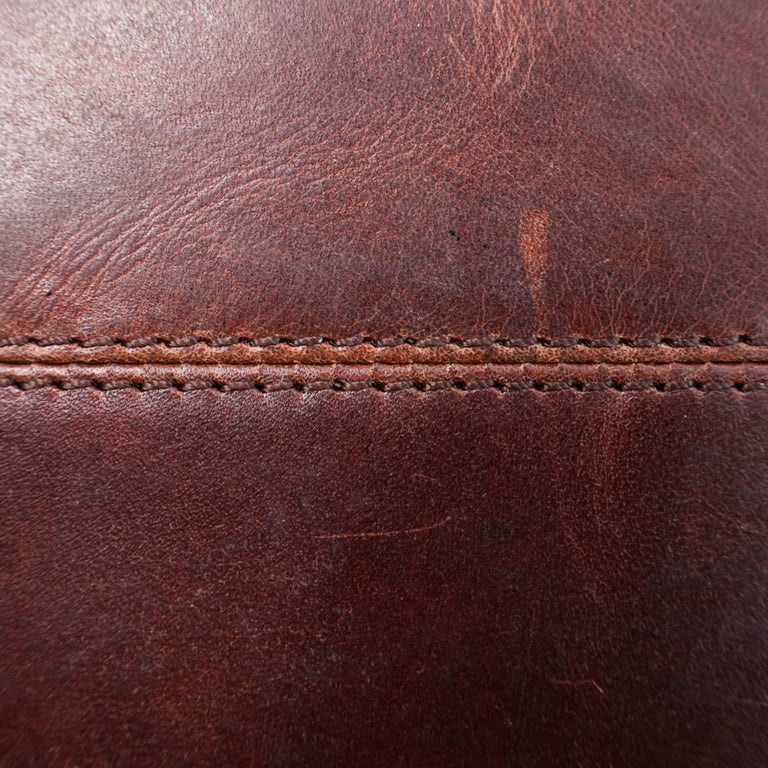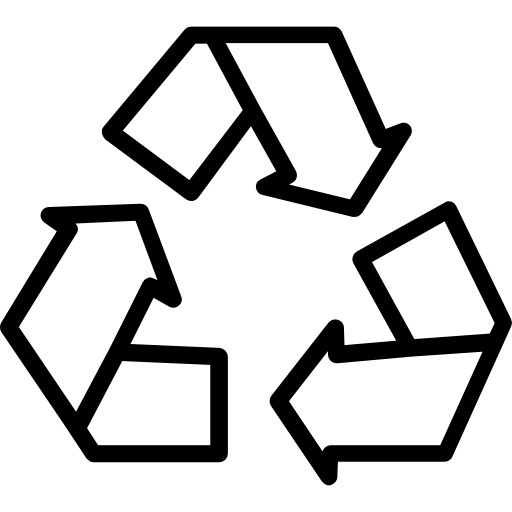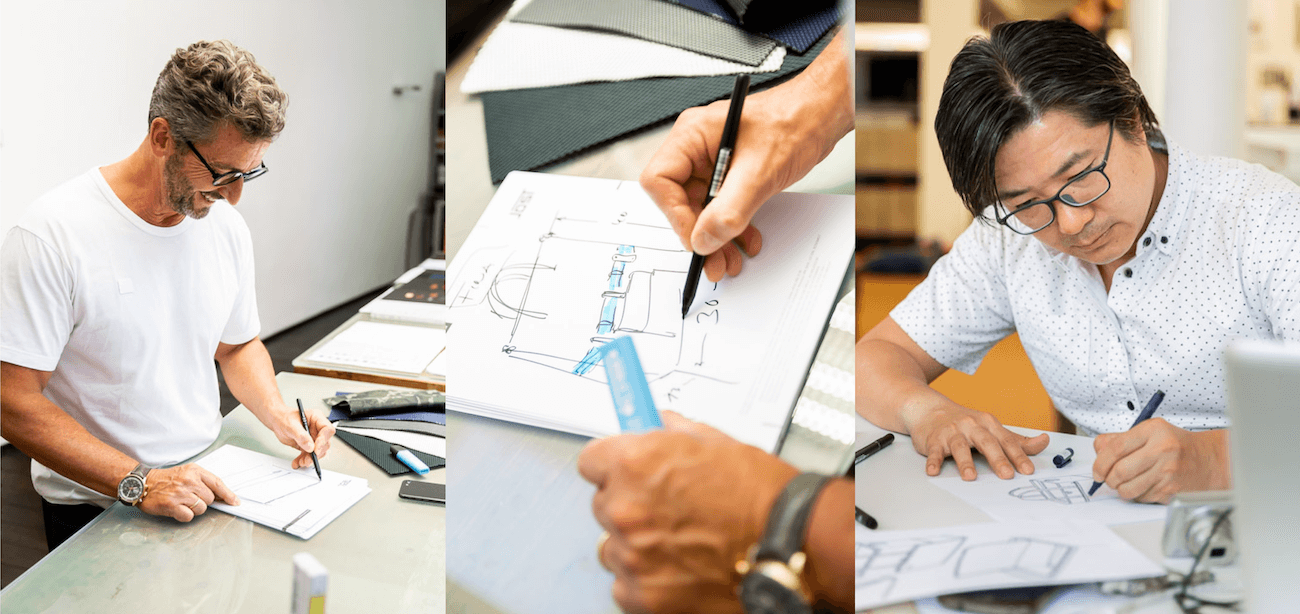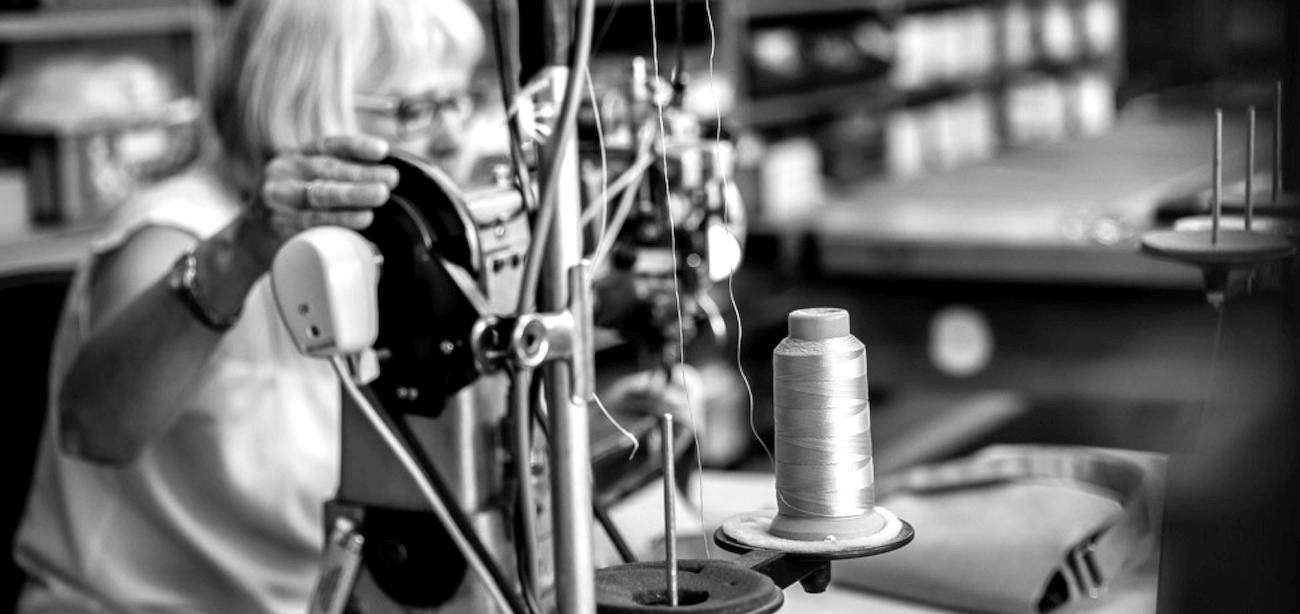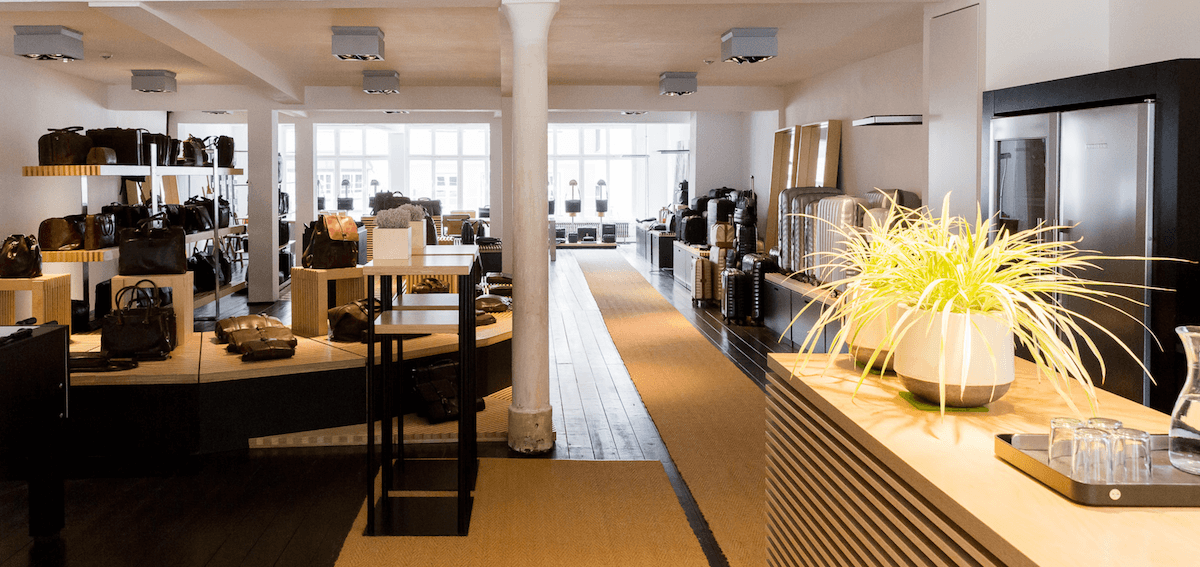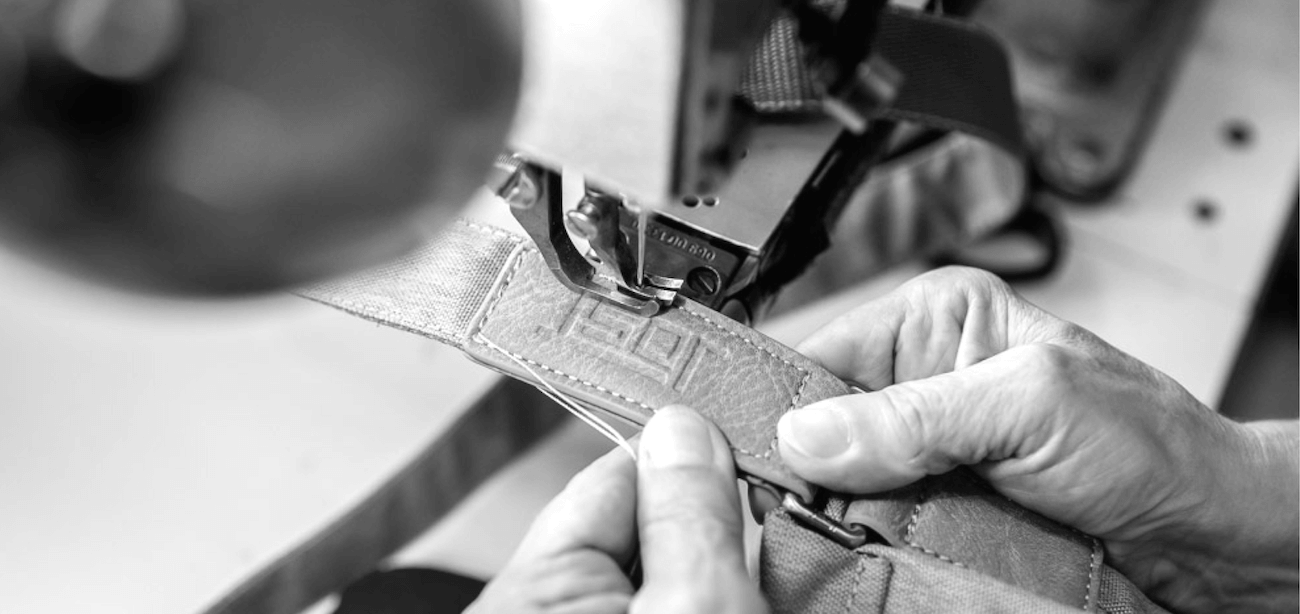JOST's roots go back to 1891. Over time, our company developed from a small saddlery into a strong and successful family business. Our founding premise is: high-quality craftsmanship, exceptional materials and a unique, authentic style. Attributes that still underpin the brand's national and international success today, based on decades of solid production experience.
We are a family-run company that is committed to balancing work and family. We guarantee this to all our employees and partners.
Key facts
As a fashion brand, we are ready to improve the impact of our production. We're not perfect today, but we're working on improving every day.
Our materials
We offer a wide range of materials ranging from leather to vegan alternatives. We make sure that the materials are of the highest quality
Meet quality standards. Our leather products are made from LWG certified cowhide to reduce our footprint on the environment. We also have a selection of products made from post-industrial PET material. These materials are made from recycled plastics and help reduce waste and pollution.
We also offer vegan alternatives that are made from high quality materials and meet the same high quality standards. We already use 100% recycled PET as the inner lining for more than 90% of our products.
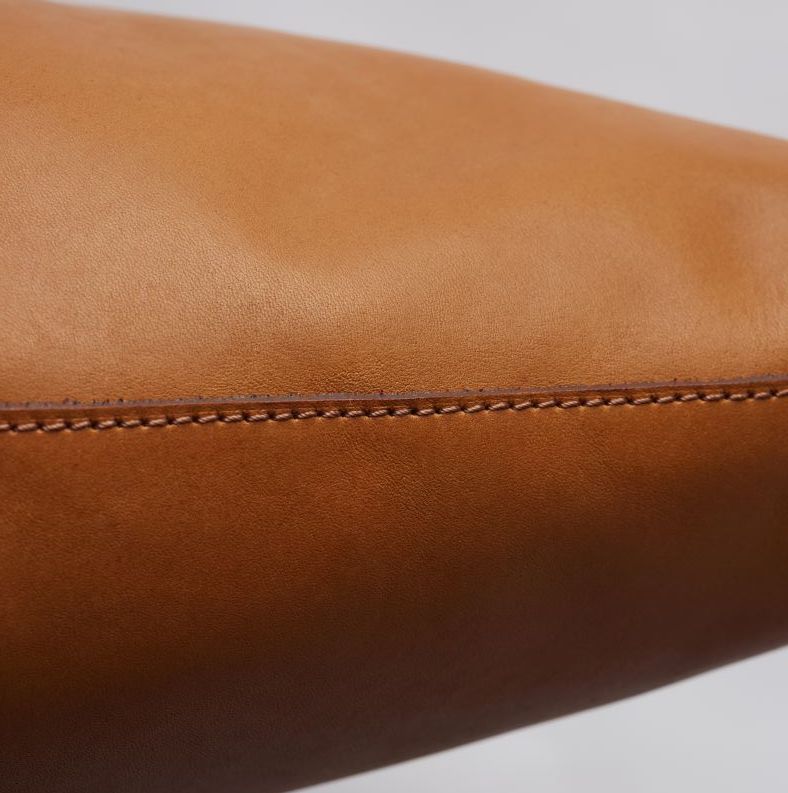
Leather from LWG tanneries
Leather from a tannery certified by the Leather Working Group (LWG) is significantly less harmful to the environment than from uncertified tanneries. The LWG is a group of brands, retailers and leather manufacturers that has introduced a certification system to promote sustainability in the leather industry. Tanneries certified by LWG are evaluated based on their environmental performance and social responsibility. They are evaluated based on criteria such as water and energy consumption, chemical management and waste disposal. Tanneries that meet LWG standards receive a gold, silver or bronze rating. For this reason, it is important to us to work exclusively with these certified tanneries.
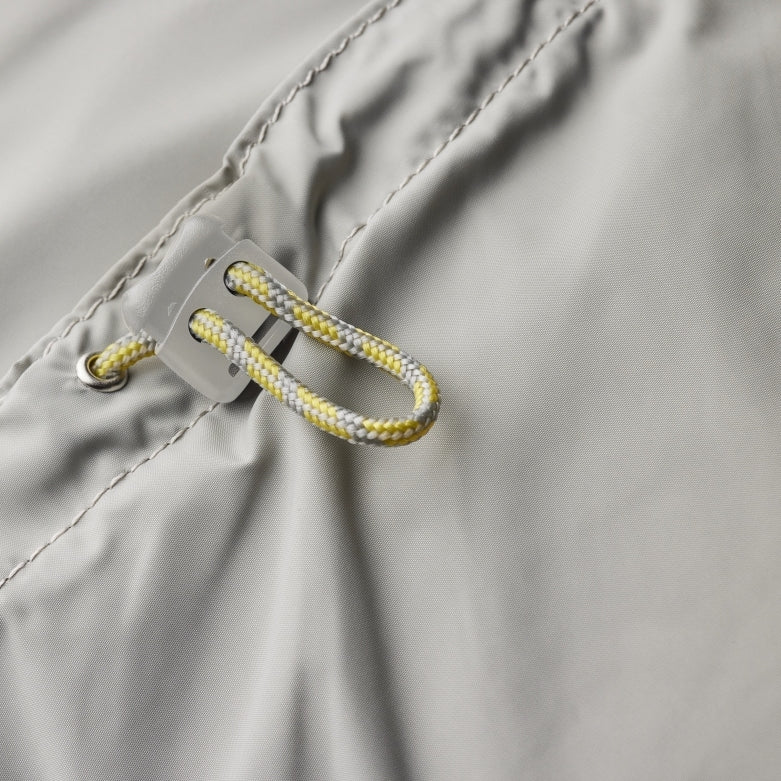
Recycled nylon
Nylon recycled from post-industrial waste refers to nylon material made by reusing nylon waste generated during the manufacturing process. Post-industrial waste is waste generated during the production of goods, such as: E.g. waste, offcuts or scrap material. The process of recycling post-industrial nylon waste typically involves collecting the nylon waste, cleaning and sorting it by color and quality, and then melting and forming it into new nylon products. By using recycled nylon, we at JOST can make a small contribution to reducing the amount of waste that ends up in landfills and reduce our dependence on virgin nylon, which requires new resources and energy to produce. Recycling nylon from post-industrial waste can also have environmental benefits, such as: B. reducing greenhouse gas emissions and conserving resources. However, it should be noted that recycling still requires energy and resources. It is therefore important for us as manufacturers and consumers to reduce consumption and waste from the outset.
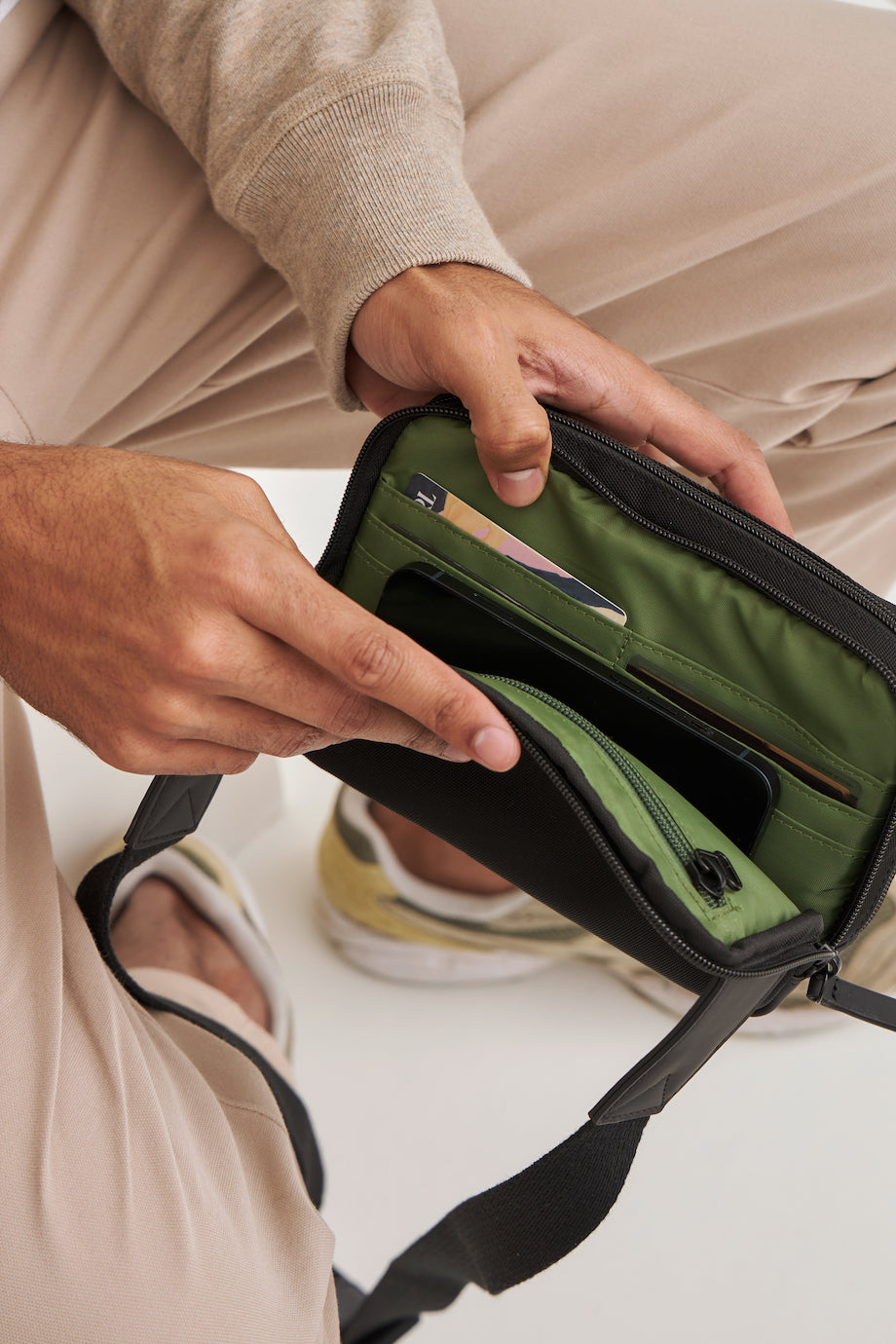
Recycled PET inner lining
100% recycled PET lining in bags refers to using a material made from recycled plastic bottles as the lining of a bag. PET (polyethylene terephthalate) is a type of plastic commonly used for beverage bottles, food packaging, and other consumer products.
To make the lining material, plastic bottles are collected, sorted, cleaned and melted down into granules that can then be woven into fabric. This fabric can be used as a lining for bags and other products and represents a sustainable alternative to traditional synthetic materials.
Using 100% recycled PET as lining in bags can have several benefits for us and our environment. First, it can reduce the amount of plastic waste that ends up in landfills or the oceans. By recycling plastic bottles into a new product, manufacturers can remove waste from the waste stream and save resources. Second, like our recycled nylon, it can help reduce the use of new synthetic materials, which require new resources and energy to produce. In addition to these environmental benefits, recycled PET lining can also be durable, lightweight and water-resistant, making it a functional material for our bag linings.
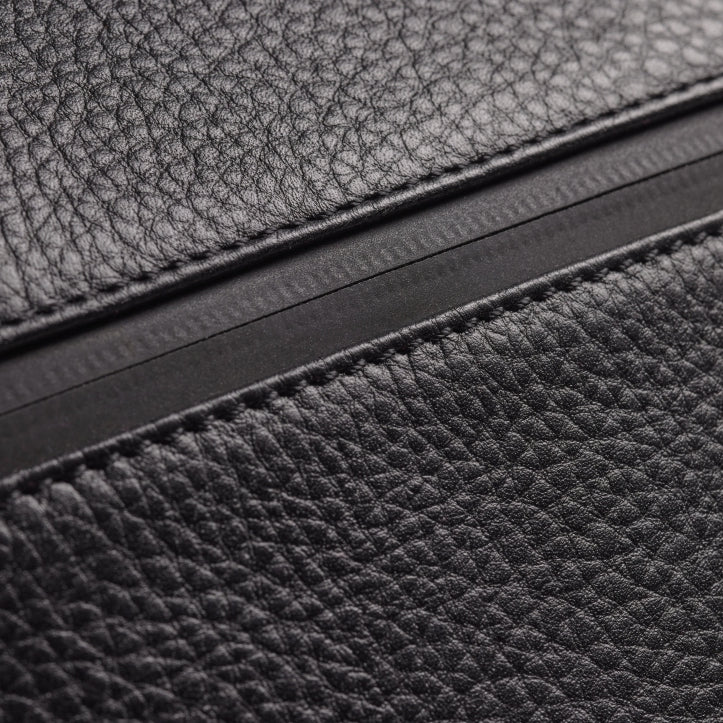
Accessories: Zippers
There are different types of zippers we use for our bags including waterproof, reflective, metallic, polished, symmetrical and high quality zippers. Three of the brands we work with are recognized players in the market such as YKK, SBS and OKK. Depending on the requirements, we decide on the best option for each product.
Waterproof zippers are designed to prevent water from entering through the zipper teeth, making them ideal for bags designed for commuting or the outdoors. Reflective zippers have a reflective strip on the tape that makes them visible in low light conditions. Metal zippers are durable and can add an elegant touch to a bag, while polished metal zippers have a shiny finish. Symmetrical zippers have two sliders and can be opened from either side, making them practical for bags with two compartments. Each of our zippers is selected to last for years with proper use.
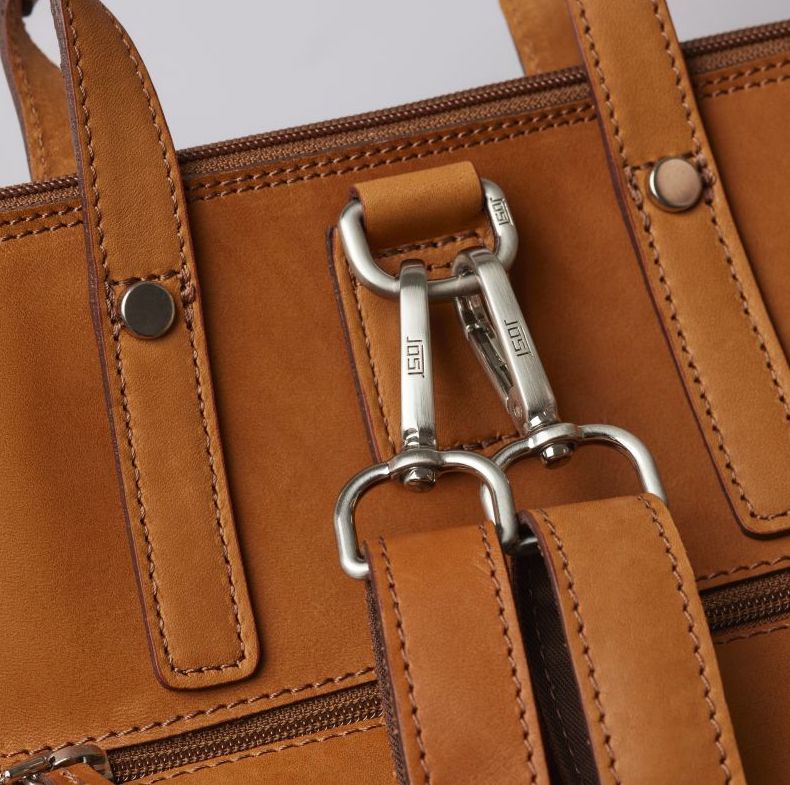
Metal and plastic accessories
Stainless Steel - This is a durable and corrosion-resistant metal commonly used for buckles, clasps, and hardware.
Brass - This metal is commonly used for zippers, buckles, and other hardware. It is relatively inexpensive and has a warm, gold-like appearance.
Zinc Alloy - This material is often used for handbag hardware because it is lightweight and can be cast into intricate shapes. It is also affordable and can be coated with a variety of finishes.
Aluminum - This metal is lightweight and corrosion-resistant, making it a popular choice for luggage tags and other small accessories.
We do not use rare earths such as gold or silver.
If you have any questions, please feel free to contact us: hello@jost-bags.com

